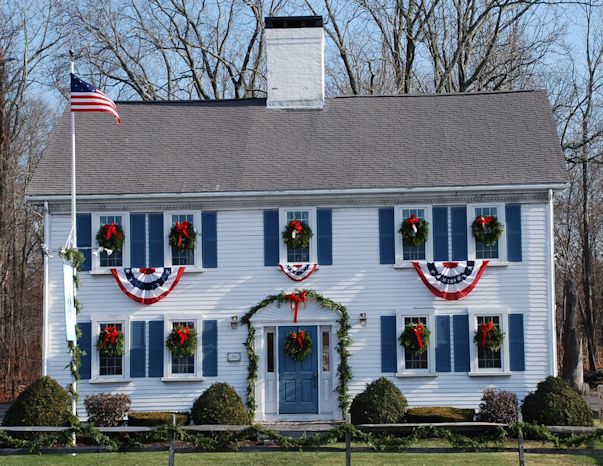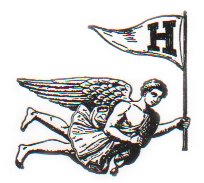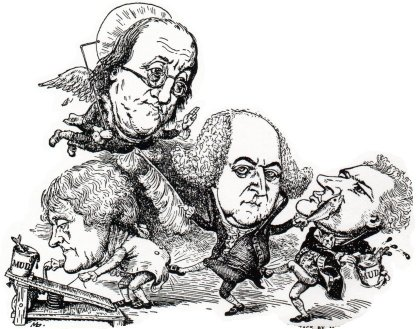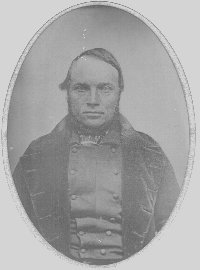



Blanchard's Colonial Tavern Museum



98 North Main Street, Avon, Massachusetts 02322
Tel: 508-587-2884
Tel: 508-587-2884


Blanchard's Colonial Tavern
Henry Lawton Blanchard Museum
Home of Captain Sam Robbins
Home of Captain Sam Robbins
Blanchard's Colonial Tavern Museum
98 North Main Street
Avon, MA 02322
(508) 587-2884
Home of Captain Sam Robbins Museum
188 Main Street
Avon, MA 02322
(508)583-7616
98 North Main Street
Avon, MA 02322
(508) 587-2884
Home of Captain Sam Robbins Museum
188 Main Street
Avon, MA 02322
(508)583-7616
Copyright © 2013 by "Henry Lawton Blanchard Fund" • All Rights reserved •
Mutiny - A True Bostonian - Brotherly Love among the Founding Fathers - Colonial Draft
Yankee Doodle - Washington at Valley Forge - Washington's False Teeth
Scrumpy - George Washington's Expense Account - Thomas Jefferson - General Howe's Dog
Washington Crossing the Delaware - Old English Inns - Colonial Epitaphs
Yankee Doodle - Washington at Valley Forge - Washington's False Teeth
Scrumpy - George Washington's Expense Account - Thomas Jefferson - General Howe's Dog
Washington Crossing the Delaware - Old English Inns - Colonial Epitaphs
MUTINY
While Herman Wouk, author of the Caine Mutiny, prefaces his book with the statement that no mutiny had occurred in the U.S. Navy, he didn't go back far enough. Such a mutiny did occur aboard the Continental Navy ship ALLIANCE.
The culprit was Captain Pierre Landais whose instability parallels the of the fictional Captain Queeg. Benjamin Franklin, then Ambassador to France, commented, " If I had 20 ships of war at my disposal, I should not give one of them to Captain Landais."
The 1779 trial held by the Navy Board in Boston had plenty to say about Landais' shortcomings. They ordered him to turn the ship over to Captain John Berry. He refused and threatened to shoot anyone who tried. A sergeant and two men arrested him.
Among the bill of particulars, Landais had been instructed by the Navy to accept delivery of the ALLIANCE in France from Franklin. Instead he grabbed the ship and sailed off.
His conduct on board was unbalanced, hence the crew mutinied and seized the vessel. His actions were unbalanced as Queeg's. The Navy Board affirmed this action.
While Herman Wouk, author of the Caine Mutiny, prefaces his book with the statement that no mutiny had occurred in the U.S. Navy, he didn't go back far enough. Such a mutiny did occur aboard the Continental Navy ship ALLIANCE.
The culprit was Captain Pierre Landais whose instability parallels the of the fictional Captain Queeg. Benjamin Franklin, then Ambassador to France, commented, " If I had 20 ships of war at my disposal, I should not give one of them to Captain Landais."
The 1779 trial held by the Navy Board in Boston had plenty to say about Landais' shortcomings. They ordered him to turn the ship over to Captain John Berry. He refused and threatened to shoot anyone who tried. A sergeant and two men arrested him.
Among the bill of particulars, Landais had been instructed by the Navy to accept delivery of the ALLIANCE in France from Franklin. Instead he grabbed the ship and sailed off.
His conduct on board was unbalanced, hence the crew mutinied and seized the vessel. His actions were unbalanced as Queeg's. The Navy Board affirmed this action.
A TRUE BOSTONIAN
A soul from earth to heaven went,
To whom the saint as he drew near,
Said: "Sir, what claim do you present
To us to be admitted here?"
" In Boston I was born and bred,
And in her schools was educated:
I afterward at Harvard read,
And was with honors graduated.
" In Trinity a pew I own,
Where Brooks is held in such respect,
An the society is known
To be the cream of the select.
" In fair Nahant --- a charming spot ---
I own a villa, lawns, arcades,
And, last, a handsome burial lot
In dead Mt. Auburn's hallowed shades."
St. Peter mused and shook his head,
Then, as a gentle sigh the drew,
" Go back to Boston, friend, " he said,
" Heaven isn't good enough for you. "
-- The Old Farmer's Almanac
A soul from earth to heaven went,
To whom the saint as he drew near,
Said: "Sir, what claim do you present
To us to be admitted here?"
" In Boston I was born and bred,
And in her schools was educated:
I afterward at Harvard read,
And was with honors graduated.
" In Trinity a pew I own,
Where Brooks is held in such respect,
An the society is known
To be the cream of the select.
" In fair Nahant --- a charming spot ---
I own a villa, lawns, arcades,
And, last, a handsome burial lot
In dead Mt. Auburn's hallowed shades."
St. Peter mused and shook his head,
Then, as a gentle sigh the drew,
" Go back to Boston, friend, " he said,
" Heaven isn't good enough for you. "
-- The Old Farmer's Almanac

Brotherly Loveamong theFounding Fathers
Compiled by Robert C. Alberts
Drawn for American Heritage by Michael Ramus
Compiled by Robert C. Alberts
Drawn for American Heritage by Michael Ramus

John Adams on Thomas Jefferson:
He has a mind, soured, yet seeking for popularity, and eaten to a honeycomb with ambition, yet weak, confused, uninformed, and ignorant."
Jeffersonon on Alexander Hamilton:
This man is stark mad, or I am." "[Consider] the profligacy of his life; his fornications, adulteries and his incest's."
Jefferson on Benjamin Franklin:
His whole life has been one continued insult to good manners and to decency....From five complete years of experience of Dr. Franklin....
I can have no dependence on his word....I wish with all my soul he was out of public service."
I can have no dependence on his word....I wish with all my soul he was out of public service."
Jefferson on Adams:
[He is] distrustful, obstinate, excessively vain, and takes no counsel from anyone."
Jefferson on Hamilton:
I will not suffer my retirement to be clouded by the slanders of a man whose history, from the moment at which history can stoop to notice him, is a tissue of machinations against the liberty of the country which not only has received and given him bread, but helped its honors on his head.
Alexander Hamilton on Jefferson:
A man of profound ambition and violent passions....the most intriguing man in the United States....the intriguing incendiary, the aspiring turbulent competitor....prone to projects which are incompatible with the principals of stable and systematic government.
Alexander Hamilton on Jefferson:
A man of profound ambition and violent passions....the most intriguing man in the United States....the intriguing incendiary, the aspiring turbulent competitor....prone to projects which are incompatible with the principals of stable and systematic government.
Jefferson on Adams:
....disgusting egotism....distempered jealousy....ungovernable indiscretion." "... vanity without bounds."
Benjamin Franklin on vituperation:
Love your Enemies, for they tell you your Faults.
The draft did not begin during the Civil War as is generally thought, but during the Revolutionary War. Here is an Example:
To Mr. James Cook,
Sir, with the advice of the Military Officers, Selectmen and Committee of this Town you are draughted to do eight
months service in the Continental Army from this date: and are to furnish yourself for camp and be in reddiness forthwith
to muster and to march when and where ordered, otherwise to pay a fine of fifteen pounds in twenty four hours from the time of your being draughted.
New Salem, Mass, April 17, 1778
Wm Page, Lt.
COLONIAL DRAFT
Yankee Doodle
The most popular dance of the Revolution was a tune traced back to
The middle ages. The words were composed by a British surgeon to spoof the unkempt Yankees.
It was fifed by the Redcoats on their march to Lexington.
Here is the original British version:
The middle ages. The words were composed by a British surgeon to spoof the unkempt Yankees.
It was fifed by the Redcoats on their march to Lexington.
Here is the original British version:
Brother Ephraim sold his cow And bought him a commission
And then he went to Canada To fight for the nation
But when Ephraim he came home He proved an errant coward
He wouldn't fight the Frenchmen there For fear of being devoured.
Sheep’s head and vinegar Buttermilk and tansy
Boston is a Yankee town Sing Hey doodle dandy;
First we'll take a pinch of snuff And then a drink of water
And then we'll say how do you do And that's a Yankee supper.
Christmas is a coming boysWe'll go to Mother Chases
And there we'll get a sugar dram Sweetened with molasses
Heigh ho for our Cape Cod Heigh ho Nantasket
Donor let the Boston wags Feel your oyster basket.
And then he went to Canada To fight for the nation
But when Ephraim he came home He proved an errant coward
He wouldn't fight the Frenchmen there For fear of being devoured.
Sheep’s head and vinegar Buttermilk and tansy
Boston is a Yankee town Sing Hey doodle dandy;
First we'll take a pinch of snuff And then a drink of water
And then we'll say how do you do And that's a Yankee supper.
Christmas is a coming boysWe'll go to Mother Chases
And there we'll get a sugar dram Sweetened with molasses
Heigh ho for our Cape Cod Heigh ho Nantasket
Donor let the Boston wags Feel your oyster basket.
Washington at Valley Forge
The legend of Washington praying at Valley Forge ( as depicted on a U.S. Postage stamp of 1977 ) is apocryphal.
It was concocted by Parson Weems, the same man who created the story of the cherry tree.
( ref American Heritage, April 1964, p 94 ).
It was concocted by Parson Weems, the same man who created the story of the cherry tree.
( ref American Heritage, April 1964, p 94 ).
Washington's False Teeth
George Washington wore false teeth made of bone. Their staining pattern resembled wood grain, hence the belief he had wooden choppers.
Here's a letter he wrote to his Philadelphia dentist, Doctor Baker
New Windsor, May 29, 1781
A day or two ago I requested Col. Harrison to apply to you for a pair of pincers to fasten the wire of my teeth. I hope you furnished him with them. I now wish you would send me one of your scrapers as my teeth stand in need of a cleaning and I have little prospect of being in Philadelphia soon.
It will come very safe by the post and in return the money shall be sent as soon as I have the cash of it.
I am sir, your very able servant
G. Washington
Here's a letter he wrote to his Philadelphia dentist, Doctor Baker
New Windsor, May 29, 1781
A day or two ago I requested Col. Harrison to apply to you for a pair of pincers to fasten the wire of my teeth. I hope you furnished him with them. I now wish you would send me one of your scrapers as my teeth stand in need of a cleaning and I have little prospect of being in Philadelphia soon.
It will come very safe by the post and in return the money shall be sent as soon as I have the cash of it.
I am sir, your very able servant
G. Washington
SCRUMPY
By Dr. Richard Weiss
By Dr. Richard Weiss
The two most popular drinks in the colonial period were beer and hard cider, both made from recipes brought from England. Cider made from scrumps (windfall apples) was brewed in the west country of England and had the reputation of being a 'man's' drink.
"Two men held you while you drank it." Such techniques as dropping a bag of pig's blood in the neck of the bottle to catch the yeast would give it a kick. Scrumpy is still available in the west of England but pig's blood has been replaced with fatty bacon or rabbit skin and is slowly fermented in oak casks.
Following the Norman conquest in 1066 cider was an output of the monasteries and by the time of the 17th century every household had its own orchard and cider press.
Laborers were partially paid with three or four pints of the brew. Cider lost favor in the nineteenth century but is now showing a resurgence. Bulmer's, a well known manufacturer, has planted a million new trees in the past ten years.
Cider apples are chosen for their higher tannin content and go under such names as Bloody Turk, Sheep's nose, Strawberry Norman, and Slack The Girdle. Apples were knocked down from the trees with long poles but now they employ tractors and blowing machines.
To test if the apples are ripe you squeeze one with your thumb- juice should squirt out. Pressing takes place from September to December.
To separate the juice the mashed pulp was formerly dropped onto horsehair or cheesecloth but today cocoa or sisal fiber is used. Pressures of 3000 pounds per square inch are employed to squeeze the pulp and release the liquor.
The dry pulp is employed as cattle feed. Bulmers now produces 60 million gallons a year.
Try some cider on your next visit to Blanchard's.. Sorry, you'll have to visit the west country of England for real scrumpy.
"Two men held you while you drank it." Such techniques as dropping a bag of pig's blood in the neck of the bottle to catch the yeast would give it a kick. Scrumpy is still available in the west of England but pig's blood has been replaced with fatty bacon or rabbit skin and is slowly fermented in oak casks.
Following the Norman conquest in 1066 cider was an output of the monasteries and by the time of the 17th century every household had its own orchard and cider press.
Laborers were partially paid with three or four pints of the brew. Cider lost favor in the nineteenth century but is now showing a resurgence. Bulmer's, a well known manufacturer, has planted a million new trees in the past ten years.
Cider apples are chosen for their higher tannin content and go under such names as Bloody Turk, Sheep's nose, Strawberry Norman, and Slack The Girdle. Apples were knocked down from the trees with long poles but now they employ tractors and blowing machines.
To test if the apples are ripe you squeeze one with your thumb- juice should squirt out. Pressing takes place from September to December.
To separate the juice the mashed pulp was formerly dropped onto horsehair or cheesecloth but today cocoa or sisal fiber is used. Pressures of 3000 pounds per square inch are employed to squeeze the pulp and release the liquor.
The dry pulp is employed as cattle feed. Bulmers now produces 60 million gallons a year.
Try some cider on your next visit to Blanchard's.. Sorry, you'll have to visit the west country of England for real scrumpy.
George Washington's Expense Account
In 1775 the Continental Congress budgeted $6000 a year for the new Commander-in-Chief of the Continental army.
But Washington did the noble thing and agreed to serve without pay, only out-of-pocket expenses. The war lasted 8 years and would have cost congress $48,000 in pay. When Washington submitted his expense account it came to ten times that.
He did a lot of shopping- new horses, carriages, furnishings for his mobile home etc. He was first in shopping and first in the hearts of his countrymen. He charged for Martha's visits to Valley Forge and didn't skimp on food for himself and his aides.
Col. Knox started the war at 230 pounds and ended at 280. One item listed a ball of twine at $1.98 followed by $2000 to feed his army.
And congress paid it all! But when he became president and offered the same terms congress insisted he take a salary of $25,000.
In 1970 when a book was published GEORGE WASHINGTON'S EXPENSE ACCOUNT the DAR bought up all the copies and burned them.
But Washington did the noble thing and agreed to serve without pay, only out-of-pocket expenses. The war lasted 8 years and would have cost congress $48,000 in pay. When Washington submitted his expense account it came to ten times that.
He did a lot of shopping- new horses, carriages, furnishings for his mobile home etc. He was first in shopping and first in the hearts of his countrymen. He charged for Martha's visits to Valley Forge and didn't skimp on food for himself and his aides.
Col. Knox started the war at 230 pounds and ended at 280. One item listed a ball of twine at $1.98 followed by $2000 to feed his army.
And congress paid it all! But when he became president and offered the same terms congress insisted he take a salary of $25,000.
In 1970 when a book was published GEORGE WASHINGTON'S EXPENSE ACCOUNT the DAR bought up all the copies and burned them.
THOMAS JEFFERSON
Gourmet President
Gourmet President
After five years in France as American representative Jefferson feasted on the best that Paris could offer and instituted this broad knowledge of culinary details during his 8 White House years. On a Presidential salary of $25,000 per year all of it was expended on feeding his daily guests ( and himself ) on the best that money could buy and his chefs could prepare.
Guests were pleased to be introduced to exotic items from abroad such as macaroni, vermicelli, anchovies olive oil, vanilla, citron, Parmesan cheese, European nuts, and figs. Ices and ice creams were new to most guests.
He engaged a maitre d'hotel at $30 per month who would shop the markets in nearby Georgetown for the best foods available, ordering other items from abroad. The daily grocery bill came to about $50. To indicate what basic ingredients were purchased and turned over to the cook, we list some of these items;
1.Venison, a luxury, was 13 cents a pound
2. Pork, beef and mutton, 9 cents a pound ( hundreds of pounds per week )
3. Three turkeys at $1.00 each
4. Ten ponds of lard, 8 ponds of butter at 30 cents a pond, a pigs head, and two cured beef tongues per week.
5. In addition to common vegetables Jefferson added mushrooms, broccoli, endive, and
artichokes.
6. Whiskey, 60 cents a gallon, mostly for his guests.
7. A large chunk of perch 25 cents
8. Oysters, 90 cents a gallon baked in a pie
9. Bread, a dozen large loaves at 12 1/2 cents each
10. A dozen crabs at 1 cent each
11. A dozen little fish for the Roman Catholics
12. A Suckling Pig for his guests ( he ate little pork )
13. Milk, 9 cents a quart
14. Oranges, 85 cents a dozen
15. Plenty of eggs at 20 cents a dozen
16. Plenty of wild fowl from the nearby Potomac
17. Amole cider wine
18. Plenty of spinach, cabbage, celery, and chestnuts
19. Tea, Virginia hams, and sugar by the barrel
20. Coffee, 33 cents a pound
Dinner started each day at 4 PM and the Marine band was given $30 to entertain his 14 guests ( 13 was unlucky ). Jefferson's $25,000 probably did not cover his lavish entertainments. While Jefferson was not a great eater, everything he consumes was choice.
In his later years at Monticello it was a matter of southern hospitality to entertain gentlemen who called. Jefferson's reputation as a host soon lead him to virtual poverty as the famous home fell into disrepair.
Guests were pleased to be introduced to exotic items from abroad such as macaroni, vermicelli, anchovies olive oil, vanilla, citron, Parmesan cheese, European nuts, and figs. Ices and ice creams were new to most guests.
He engaged a maitre d'hotel at $30 per month who would shop the markets in nearby Georgetown for the best foods available, ordering other items from abroad. The daily grocery bill came to about $50. To indicate what basic ingredients were purchased and turned over to the cook, we list some of these items;
1.Venison, a luxury, was 13 cents a pound
2. Pork, beef and mutton, 9 cents a pound ( hundreds of pounds per week )
3. Three turkeys at $1.00 each
4. Ten ponds of lard, 8 ponds of butter at 30 cents a pond, a pigs head, and two cured beef tongues per week.
5. In addition to common vegetables Jefferson added mushrooms, broccoli, endive, and
artichokes.
6. Whiskey, 60 cents a gallon, mostly for his guests.
7. A large chunk of perch 25 cents
8. Oysters, 90 cents a gallon baked in a pie
9. Bread, a dozen large loaves at 12 1/2 cents each
10. A dozen crabs at 1 cent each
11. A dozen little fish for the Roman Catholics
12. A Suckling Pig for his guests ( he ate little pork )
13. Milk, 9 cents a quart
14. Oranges, 85 cents a dozen
15. Plenty of eggs at 20 cents a dozen
16. Plenty of wild fowl from the nearby Potomac
17. Amole cider wine
18. Plenty of spinach, cabbage, celery, and chestnuts
19. Tea, Virginia hams, and sugar by the barrel
20. Coffee, 33 cents a pound
Dinner started each day at 4 PM and the Marine band was given $30 to entertain his 14 guests ( 13 was unlucky ). Jefferson's $25,000 probably did not cover his lavish entertainments. While Jefferson was not a great eater, everything he consumes was choice.
In his later years at Monticello it was a matter of southern hospitality to entertain gentlemen who called. Jefferson's reputation as a host soon lead him to virtual poverty as the famous home fell into disrepair.
GENERAL HOWE'S DOG
In the early morning of October 4, 1777 General Washington made a surprise attack on the British who occupied the Germantown
suburb of Philadelphia. It was quite foggy and two of the American units began firing at each other. General Howe, followed by his dog, went out on horseback to investigate the cause of the disturbance but made a hasty retreat when the grapeshot began whistling around his ears. The British repelled the attack but the confused dog retreated with the wrong troops. The animal was taken to Washington who had his aid Alexander Hamilton pen a note to Howe. The message together with Washington's corrections follows;
"General Washington's compliments to General Howe. He does himself the pleasure to return him a dog which accidentally fell into his hands and by the inscription on the collar appears to belong to General Howe.
October 6, 1777
suburb of Philadelphia. It was quite foggy and two of the American units began firing at each other. General Howe, followed by his dog, went out on horseback to investigate the cause of the disturbance but made a hasty retreat when the grapeshot began whistling around his ears. The British repelled the attack but the confused dog retreated with the wrong troops. The animal was taken to Washington who had his aid Alexander Hamilton pen a note to Howe. The message together with Washington's corrections follows;
"General Washington's compliments to General Howe. He does himself the pleasure to return him a dog which accidentally fell into his hands and by the inscription on the collar appears to belong to General Howe.
October 6, 1777
WASHINGTON CROSSONG THE DELAWARE
We're all familiar with the famous painting of General Washington and his flag bearer standing in a rowboat with a crew of about a
dozen soldiers being rowed across the Delaware river on Christmas 1776. It was painted in 1851 by Emanuel Leutze who was born in
Germany, grew up in Philidelphia, and at age 25 returned to DÜsseldorf to join an artist's colony. Unfortunately there is plenty about the
20' by 12½' canvas that is historically inaccurate.
1. The 6'4" Washington and the flag bearer would have never stood up in a rowboat.
2. The crossing was actually made under the cover of darkness, not during
daytime.
3. The star flag had not been adopted at that time.
4. The artist showed plenty of ice but forgot to include snow on the ground.
Enlistments for many soldiers were due to run out at the end of 1776 and
Washington needed a miracle to keep the revolution alive. He accomplished this
by capturing the drunkin Hessian soldiers with their pants down during their
Xmas eve celebration. The General saved the day for the Americans.
Leutze painted two canvases, the first in 1850 which was destroyed in a
fire, restored, and lost during the Allied bombing raid in WW II. The second was
sent to New York in 1851.
dozen soldiers being rowed across the Delaware river on Christmas 1776. It was painted in 1851 by Emanuel Leutze who was born in
Germany, grew up in Philidelphia, and at age 25 returned to DÜsseldorf to join an artist's colony. Unfortunately there is plenty about the
20' by 12½' canvas that is historically inaccurate.
1. The 6'4" Washington and the flag bearer would have never stood up in a rowboat.
2. The crossing was actually made under the cover of darkness, not during
daytime.
3. The star flag had not been adopted at that time.
4. The artist showed plenty of ice but forgot to include snow on the ground.
Enlistments for many soldiers were due to run out at the end of 1776 and
Washington needed a miracle to keep the revolution alive. He accomplished this
by capturing the drunkin Hessian soldiers with their pants down during their
Xmas eve celebration. The General saved the day for the Americans.
Leutze painted two canvases, the first in 1850 which was destroyed in a
fire, restored, and lost during the Allied bombing raid in WW II. The second was
sent to New York in 1851.
there was a London inn THE GEORGE AND BLUE BOAR on the road to Tyburn where public hangings too place. If the condemned committed a heinous crime like like being a highwayman the crowd would boo but killing the tax collector would be met with cheers. The convict would be escorted into the inn for a last drink and the innkeeper would dispense it with a phrase, "Pay me on the way back."
Since few people were sufficiently affluent to entertain their friends at home the tavern or inn served this purpose. Tavern signs were quaint, humorous and historical. A common sign was the FIVE ALLS depicting five figures; the king- ' I rule all ' , the parson- ' I pray for all ', the lawyer- ' I plead for all ', the soldier- ' I fight for all ', and the taxpayer- ' I pay for all ',. Sometimes the taxpayer would be replaced by the devil- ' I take all ',. Another common sign depicted a headless woman carrying her head under her arm. The inn was called THE SILENT WOMAN.
THE CROSS KEYS, an old inn depicted the crossed St. Peter's keys on the papal coat of arms. When Henry VIII declared the Reformation, the signs were all changed to THE KING'S HEAD.
A pub called THE MAYFLOWER stands near the Warf where the famous ship left for America.
By law all pubs had to display a sign and no sign could overhang the street. In the 17th century there were 686 inns within 30 miles of London. A well known pub in Nottingham called YE OLDE TRIP TO JERUSALEM is carved into a sandstone hill and goes back to 1196 when it served the pilgrims headed for Canterbury.
OLD ENGLISH INNS
COLONIAL EPITAPHS
As I am now, so you must be, Therefore prepare to follow me.
(Someone added)
To follow you I'm not content, Until I know which way you went.
Here I lie at the Chancel door, Here lie I because I'm poor, The farther in the more you pay, Here lie I as warm as they.
Under this stone lies Meredith Morgan Who blew the bellows of our church organ, Tobacco he hated, to smoke most unwilling Yet never so pleased as when pipes he was filling.
No reflection on him for rude speech could be cast, Though he made our loud organ give many a blast. No puffer was he, though a capital blower,
He could fill double G, and now lies a note lower.
Here lies John Racket, In his wooden jacket, He kept neither horses or mules; He lived like a hog, He died a dog,And left all his money to fools.
(Someone added)
To follow you I'm not content, Until I know which way you went.
Here I lie at the Chancel door, Here lie I because I'm poor, The farther in the more you pay, Here lie I as warm as they.
Under this stone lies Meredith Morgan Who blew the bellows of our church organ, Tobacco he hated, to smoke most unwilling Yet never so pleased as when pipes he was filling.
No reflection on him for rude speech could be cast, Though he made our loud organ give many a blast. No puffer was he, though a capital blower,
He could fill double G, and now lies a note lower.
Here lies John Racket, In his wooden jacket, He kept neither horses or mules; He lived like a hog, He died a dog,And left all his money to fools.

Capt. Sam Robbins